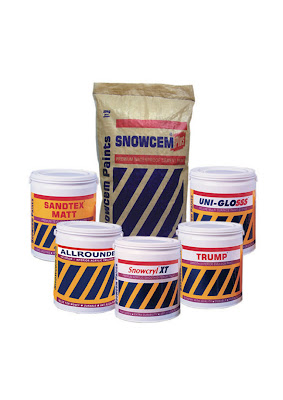 We believe in housing for everybody as it is a necessity for survival, says Rajnikant Ajmera.
We believe in housing for everybody as it is a necessity for survival, says Rajnikant Ajmera.Rajnikant Ajmera, the MD, who joined his brother Chotalal in 1977, took the group's activities to newer heights. A civil engineer, he has witnessed many changes in the workings of the industry during his 32 years and has also contributed to it. He says, "I find the industry very interesting and dynamic. I feel proud that our business is about providing one of the three basic necessities, roti, kapda and makaan and that is very humbling."
As past president of MCHI, he reminisces how, with time, the scale at which everything works has changed. "Earlier people preferred small, simple housing. Now they want good entrances, good surroundings. Then came high-rise buildings, amenities, and high-end houses," he says.
Ajmera remembers how loans were not available and buyers were reluctant to take them in the late ’70s. "The construction industry was mired in many issues and people associated it with black money so things were difficult. We helped people with documentation and showed how to procure loans from provident funds and LIC. Now almost 90 per cent of homes are bought on loans and are total cheque transactions."
Most developers funded their business through their own resources, through advance bookings or investors. "Today corporate funding is available through banks, financial institutes, investment bankers and even foreign investors. It has become the preferred sector for investment. Every function of MCHI or CREDAI attracts top people from the finance sector."
Ajmera remembers how loans were not available and buyers were reluctant to take them in the late ’70s. "The construction industry was mired in many issues and people associated it with black money so things were difficult. We helped people with documentation and showed how to procure loans from provident funds and LIC. Now almost 90 per cent of homes are bought on loans and are total cheque transactions."
The Ajmeras believe in mass housing. "People are talking of affordable housing now but we gave flats at Rs 65 per sq. ft at Andheri in 1973, to Taj Hotel employees. There was no computer to speed up the work, yet we managed to produce more than 30-50 flats a month. Even in 450 sq ft we planned a small 1BHK flat at Vijay Nagar, in Andheri east. We provided maximum carpet area by using thinner RCC walls inside flats. Using teakwood was restricted due to environment issues, but we found the alternative in rare marine teak near Hubli and we got them transported by our own fleet. Manufacturing bricks at the site helped maintain quality and timely completion besides lowering cost."
Among other pioneering work, they set up a sewage treatment plant as early as in 1973 and wherever they have done large projects in Shastri Nagar at Versova, Yoginagar in Borivali and even Shanti Nagar in Mira Road.
"We made sure there are roads and water pipelines, and sewage drainage system in place along with the sewage treatment plant. In the absence of a proper municipal corporation at Mira Road, we acquired permission from the Gram Panachayat and were almost running a mini corporation inside the colony by setting up the infrastructure and managing roads, streetlights, storm water drainage, along the lines of BMC. There was no compulsion yet we did it. We also provided water from 18 km away, bringing it from Thane Ghodbunder road for 15,000 residents. We set up a large reservoir and even pumping stations."
Having acquired a large landmass in prime locations early in the '70s, the group can offer housing at cheaper rates, even in the prime location of Wadala at Bhakti Park. "At any given time our prices have been at least Rs. 2,000 less than homes in the neighbourhood. We made good sales during the recession. Amenities like clubhouses, and pools are of the best quality and we have even developed a garden spanning about 26 acres for BMC at Bhakti Park. I have a sewage treatment plant, water recycling for the garden and many more facilities," says Ajmera proudly. The group's growth plans include acquisition of prime lands in Mumbai’s central and western suburbs.
Strategically located, Bhakti Park is designed for a mixed income group, with mid-income and high-end housing. "We have access to the main city and on the other side you have BPT road. The first project was the Imax dome theatre, which we handed over to Adlabs. Around the same time we started smaller buildings and now we also have premium, high-end, 27 storied buildings with high podiums for parking, besides basement parking," says Ajmera.
The group has projects in Ahmedabad, Surat, Rajkot, Pune and Bangalore. "In Bangalore our residential project Green Acres has been very successful and now we are building Electronic City over 2.5 million sq ft space." The Ajmeras have many firsts to their credit, like the first mall cum mulitiplex in Andheri and dome theatre. They provide care for children of labourers, and offered medical check-ups and other facilities back in their first large project at Manish Nagar in 1975.
"Besides, we have always come forward to help people during natural calamities, like the earthquake in Bhuj, and earlier in Latur," says Ajmera. A devotee of Swaminarayan Akshardham, Rajnikant Ajmera is constantly involved in uplifting the less fortunate.






1 comment:
Post a Comment